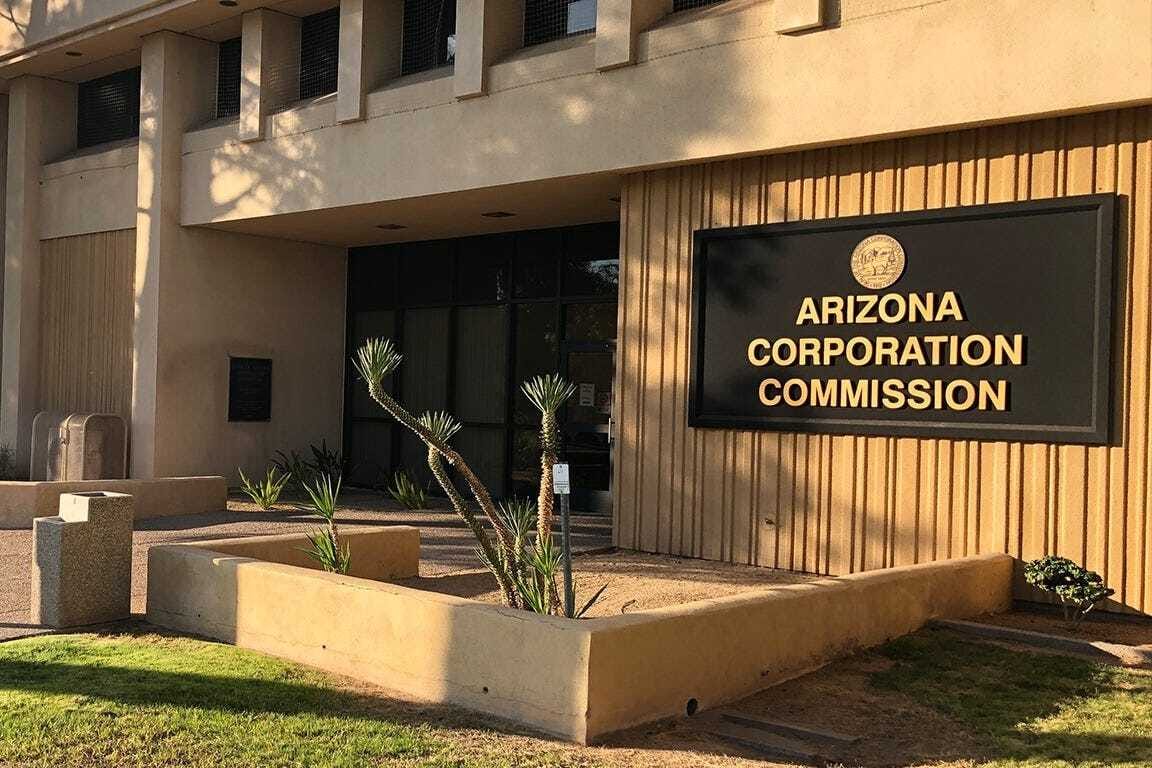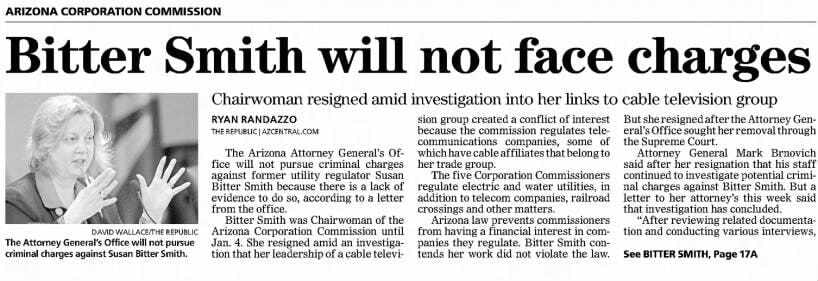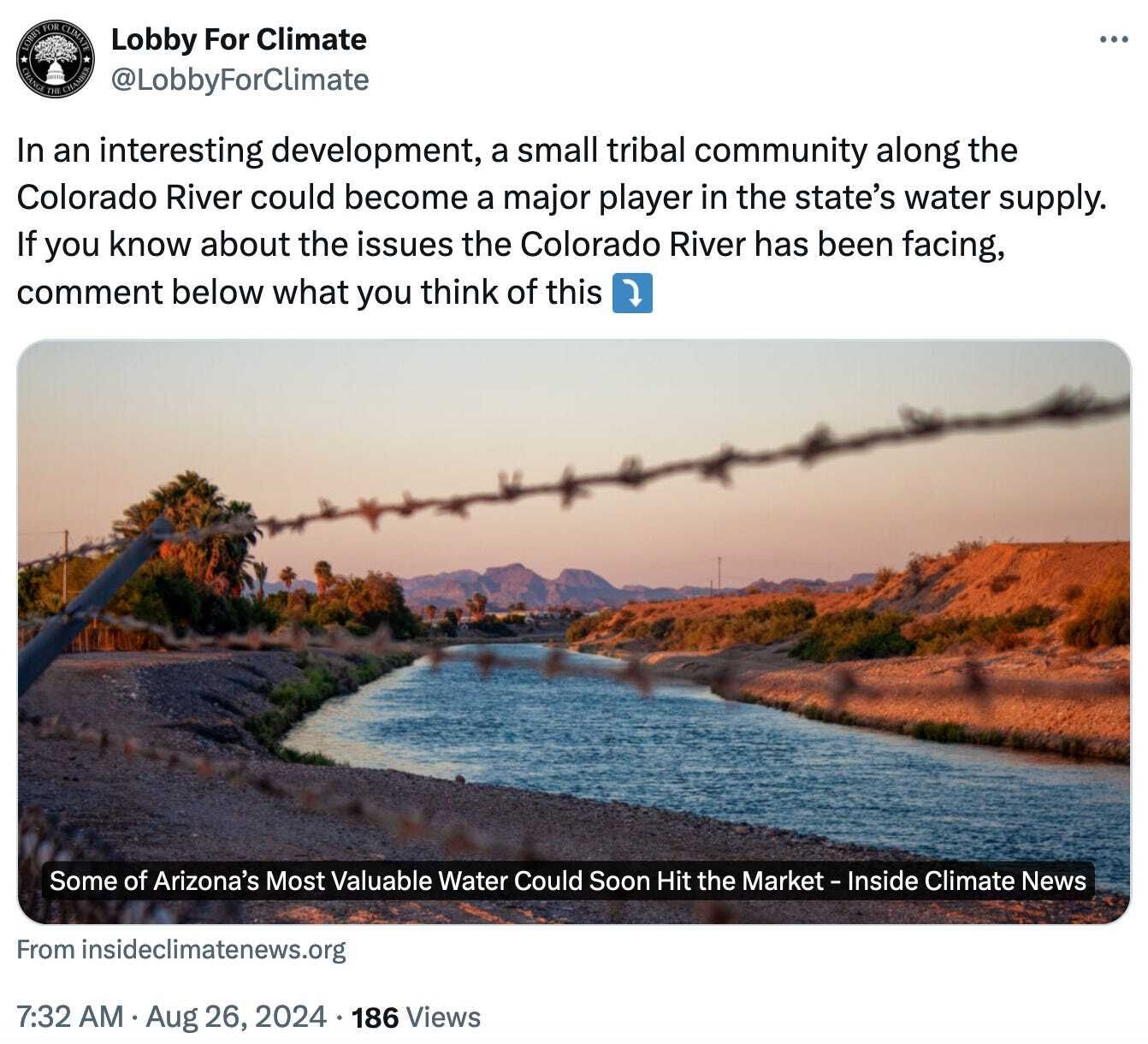I recently made the Cochise County-Phoenix trek once again, this time to chat with Gov. Katie Hobbs’ water policy advisor and then attend a mixer, hosted by the big players in Arizona’s solar industry, to chat with candidates for the Arizona Corporation Commission.
I was trying to suss out how politicos talk to voters about the ACC, an often inscrutable and nerdy agency that wields more power than most people realize.
“It’s hard,” was the general response.
Despite the ACC having more duties than any public utility commission in the U.S., it has mostly remained somewhere in the background of Arizona’s political consciousness.
“From the moment we wake up to the moment we go to bed, there is no other branch of government, I think, that is more impactful on our lives - and I include the governorship and the Legislature — than the Corporation Commission,” says Attorney General Kris Mayes, a former corporation commissioner herself.
Their less-interesting but still-important duties include regulating sectors like railroads, telecommunications, pipeline infrastructure, and the registration of all corporations in the state.
Their headline-grabbing activities are prosecuting investment securities fraud and regulating the energy and water utilities we rely on every day.
Fun fact: Arizona has 350 private water utilities, more than any other state.
The commission’s broad duties are matched by broad constitutional authorities.

In 1912, during the nation’s “Progressive Era,” Arizona’s founders decided that a governing body was needed to keep large corporations and other power players in check. They constitutionally equipped that body, the ACC, with its own legislative, executive and judicial functions. And to keep this uniquely powerful commission accountable to the public, they made it an elected office, rather than appointed.
But you can turn a guard dog into a lap dog with enough treats.
Slaying the Radical Bunny and other noble Qwests

Despite its more recent reputation for scandal and contention, the commission has a long and often overlooked history of doing what it was created to do — protecting the people from robber barons and corner-cutters. From unjustified utility rate hikes to unsafe railroad crossings, commissioners have had their work cut out for them for the last 112 years.
On securities and real estate fraud, there was the 2008 collapse of Mortgages Ltd., Arizona’s largest commercial real estate lender at the time, following the suicide of its CEO.
The Arizona Corporation Commission found that Mortgages Ltd.’s largest investor group, the curiously named Radical Bunny, had fraudulently sold $190 million in unregistered securities to its 900 individual investors, many of whom lost their life savings after the collapse. Commissioners ordered Radical Bunny to return the $190 million to investors, but it’s unclear if they ever paid up.
In 2011, the ACC handed Qwest Communications “the largest fine ever imposed” by the commission, totaling $20.7 million. Qwest was trying to re-enter Arizona’s long-distance telephone service market and was caught bribing competitors to not oppose their application with the ACC. Qwest had previously been sued in 2001 by Attorney General Janet Napolitano for “slamming and cramming” fraud,1 and was later acquired by CenturyLink who got into even more trouble.
The Regulatory Capture of the ACC
Public utilities are increasingly owned by publicly traded national and international companies — and the ACC is charged with looking after both investment securities and the utilities being invested in. Revolving doors, dark money, and other scandals were inevitable.
Commissioner Susan Bitter Smith resigned in 2015 after an attempted ouster by then Attorney General Mark Brnovich over conflict of interest concerns. Bitter Smith, making an $80,000 salary as a commissioner, was simultaneously a registered lobbyist for Cox Communications and earning $150,000 a year as the longtime executive director and lobbyist of Southwest Cable Communications Association, a nonprofit with multiple cable companies as dues-paying members.

In 2014, it was suspected and later confirmed that Arizona Public Service was spending millions of dollars on the election campaigns of ACC commissioners. The money was channeled anonymously through multiple dark money PACs, a strategy called “daisy-chaining”. It was naturally assumed that these campaign investments were intended to secure favorable regulations for APS, particularly concerning solar energy policies that threatened the utility's profits.
That dark money helped get Tom Forese elected, who became the commission’s chairman and went on to regulate favorably for APS. Forese also went on to fire ACC Executive Director Ted Vogt, claiming Vogt’s wife had ties to APS which created a conflict of interest. But insider sources said the real motivation was Vogt’s constant pressure on the commission to regulate APS fairly.
“Ted told him one too many times, ‘You might want to work on not saying yes all the time to everything they [APS] want.’ And I don’t think he liked that,” the source said. “He clearly invented a reason.”
Also in 2014, commissioner Bob Stump was accused of deleting text message exchanges with APS on his state-issued phone after a public records request was filed. The request revealed that over a 10-month period, only one of Stump’s 232 emails was actually written by Stump, while 20,000 texts had been exchanged — strong evidence that he was conducting state business by text.2 After Stump left the ACC, he went on to found and work as executive director for the “Arizona Energy Policy Group” where he represents the interests of the same utilities he previously regulated.

Last year, commissioner Kevin Thompson, a former lobbyist for Southwest Gas, faced scrutiny over meetings in New York with the American Gas Association and Wall Street investors, which many claimed was a violation of the ACC code of ethics, especially because the ACC had two open rate cases with APS and TEP at the time. Thompson claimed he was there to make sure investors understood that Arizona would be offering a favorable regulatory environment for utilities, not to discuss open cases. Watchdog groups claimed that this too was in obvious conflict with the commission’s charge to serve consumers, not providers.
Earlier this year, 12News obtained revelatory memos from Guggenheim Fellows — one of the financial companies that Thompson and fellow commissioner Nick Myers met with last year — expressing their confidence that the two commissioners would bring ACC’s regulations “back in line” with “institutional investor interests.”
The ACC is also working to repeal the commission’s previously established Renewable Energy Standard and Tariff, even though Arizona already has the least ambitious renewable energy goals of its southwestern neighbor states.
ACC’s Role in the Future of Water
Down here in Cochise County, the West Virginia-based Hearthstone Water3 is seeking to consolidate the four water utilities it owns in the county, resulting in minor rate decreases for two utilities, and massive 100% increases for the others.
This follows a trend of water utility consolidation in Arizona. Consumers in areas with lower water rates are complaining that these consolidations, which equalize rates across multiple utilities, are unfairly having them pay dramatically higher rates in order to make the parent companies more profitable and subsidize the costs of maintaining other communities’ utilities.
A more important concern, perhaps, is that Arizona is allowing local water utilities to fall into the hands of conglomerates and investors from other states and countries (like the Canada-based EPCOR, or Wall Street-based Water Asset Management LLC), where absentee management makes profit-driven decisions from a safe distance.

“Water is the new gold” is the phrase of the day as Colorado River water supplies continue to dry up and groundwater resources continue toward bottoming out. And it’s not hard to imagine how water barons would pursue regulatory capture: Fund ACC candidates who are willing to create “favorable regulatory environments” for water utility investors, increase regulatory burdens on small utilities so that they’re more willing to sell out, “say yes all the time” to the big guys seeking to consolidate and slowly crank up the rates, and support the urban water utility lobbyists when they press back against regulations.4
The solar and renewable energy battlefront will continue to be discussed over cocktails at campaign mixers — it’s easy to drag out arguments about climate change when major interruptions to our daily lives are, for many, a matter of distant-future speculation. But water is different. There is an immediacy to it. As I experienced in my own community — neighbors forget what “politics” even means when it's time to talk about water.
